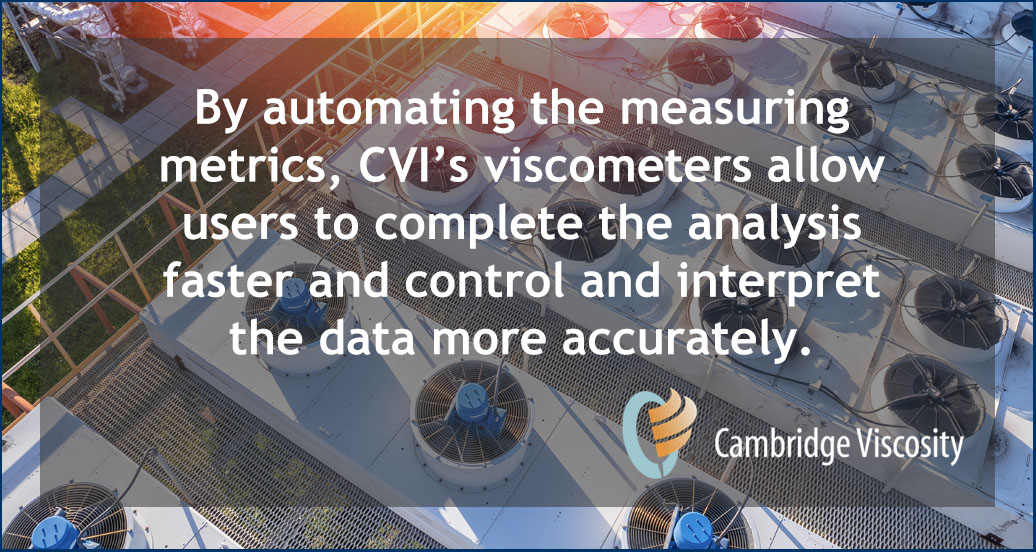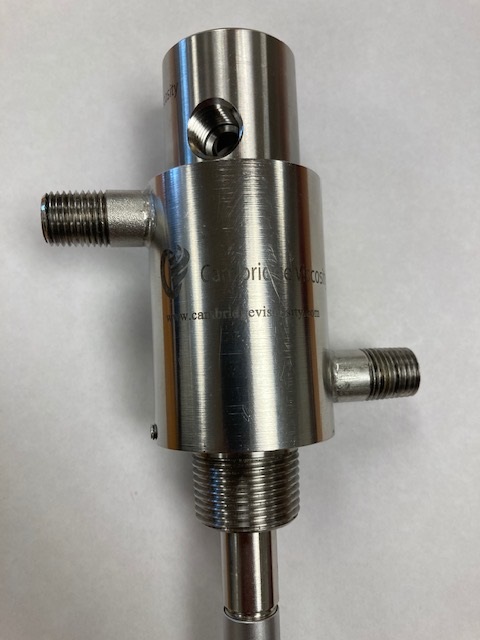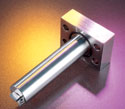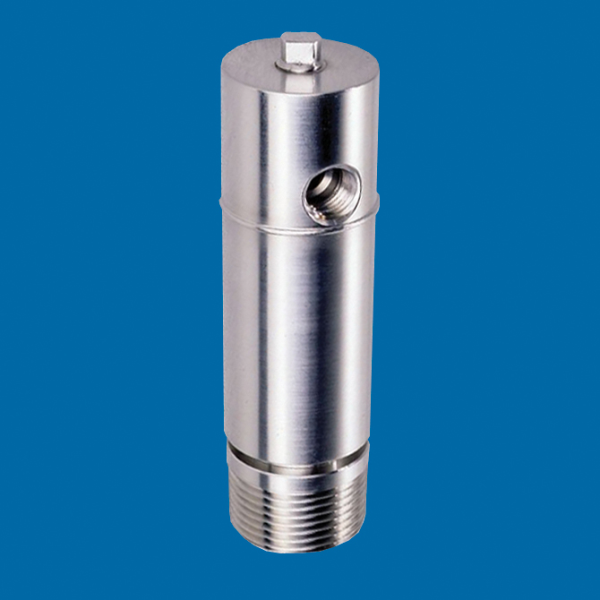Chris Seeton is widely considered to be an expert in the compressor/refrigerant industry. He has the notable distinction of being the person who won the first battle that allows new low global warming refrigerant regulations to come into effect by serving as the Global Technology Leader at Honeywell and leading the industry’s effort to replace R134a with R1234yf which came to fruition in 2015 (an EPA CAFÉ credit of 13.8 gCO2/mile or ~3 mpg per vehicle by just changing the refrigerant). Even today, he continues to drive change in the industry by leading two cooperative research project groups through SAE on developing new heat pump systems for electric vehicles.
Profile of Dr. Chris Seeton: How CVI helps support a cleaner future
Oct 13, 2022 8:33:51 AM / by Patrick Riley posted in compressor viscosity, lab viscometer, refrigerant viscosity, 372 sensor
Using a Viscometer to Control Coating in Pen Needle Manufacturing
Nov 17, 2021 7:49:54 AM / by Patrick Riley posted in viscosity control, coating viscosity, viscosity management, 372 sensor
We recently asked some of our global reps to interview customers in key industries, so we can get a deeper understanding of some of the issues customers are facing right now. Jerzy Janota, Technical Director at Industa, recently talked to a customer in a medical device production company based in Europe. The customer recently installed a ViscoPro 2100 with the SPC 372 sensor.
CVI’s 372 Sensor Ideal for High Pressures and Temperature Control
Jun 3, 2021 10:09:22 AM / by Patrick Riley posted in viscosity control, in-line viscometers, 372 sensor
Viscosity Management in Group B, C and D Hazardous Locations
Jul 20, 2017 8:21:00 AM / by Admin posted in 392 sensor, oil analysis, 374 sensor, 372 sensor
Boston—Cambridge viscometers can now be used in Gas Group B hazardous locations in addition to Group C and D hazardous environments. This extension of approvals to Class 1, Division 1, Groups B, C, and D applies to the entire family of in-line 300-series sensors made by Cambridge Viscosity. These are the primary sensors used in refining, exploration, petrochemical and chemical processes, including both standard and high temperature sensors.
The new Gas Group B classification enables these sensors to be used in hazardous locations, which include hydrogen, fuel and combustible process gases containing more than 30% hydrogen by volume or gases of equivalent hazard. Groups C and D include environments that may contain carbon monoxide, ether and hydrogen sulfide, or for Group D, gasoline, acetone, ammonia, benzene, butane, natural gas, propane and other gases of equivalent hazard.
“We are pleased that our 300 sensors have been approved for Gas Group B use. Our sensors have been Group C and D classified for years, but being approved for the more stringent hydrogen environments allows us to provide viscosity management solutions to a whole new segment of customers,” says Cambridge Director of Engineering Daniel Airey.
Cambridge 300 sensors are used in a wide variety of industries for in-line and in-tank applications. Cambridge’s viscometers are well suited to the rigors of harsh environments due to their robust, durable design and construction.

About Cambridge Viscosity
Cambridge Viscosity is the leading supplier of automated viscometers used by oil exploration and refining, coating, chemical and life science companies to optimize product and process performance. Cambridge Viscosity's sensors and viscometer systems conform to ASTM, DIN, JIS and ISO standards, with a range of models designed to meet specific industry and application needs. Certifications include ATEX, CE, and FM. CSA certification is available upon request. Cambridge's global reach provides application engineering support and service wherever and whenever needed. To learn more visit www.cambridgeviscosity.com.
Process Viscometers Control Quality of Fuel-Efficient Diesel Blend
Jun 15, 2017 12:00:00 AM / by Admin posted in VISCOpro2000, monitor viscosity, diesel viscosity, refining, in-line viscometers, 372 sensor
Boston—One of the largest US refineries has installed Cambridge Viscosity process viscometers at their diesel refinery in Texas. The company is using three VISCOpro 2000 viscometers, combined with 372 sensors, to monitor the quality of the viscosity of a diesel formulation that includes sulfur. The refinery has plans to use the viscosity system for full control of the process in the near future.
The viscometers are installed in one-quarter inch bypass lines, and set up for the final production stage to ensure quality control of their fuel-efficient diesel mixture. The VISCOpro 2000 allows for automated, continuous monitoring, as well as hands-on control, including the ability to change settings, measure different attributes, and capture and analyze real-time data. The viscometer can be programmed for up to 40 different fluid settings—enabling rapid changeovers in production processes—and features control set points and alarms (six different settings), using an easy menu-driven interface.
“The refiner chose the VISCOpro 2000 due to the sensor’s ability to precisely measure and control viscosity,” says CVI Senior Applications Engineer Cole Nee “The viscometer’s rugged construction is vibration resistant, and is designed to withstand the harsh conditions and demands of the refinery environment. Our viscometers are easy to operate and low-maintenance.”
About Cambridge Viscosity
Cambridge Viscosity, a leader in small sample viscometer systems for laboratory and process environments, designs automated viscometers used worldwide in petroleum, exploration and refining applications to ensure accurate viscosity in both lab and operations. Cambridge’s worldwide reach is important for providing application engineering support and service wherever and whenever needed.
Cambridge Viscosity’s sensors and viscometer systems conform to ASTM, DIN, JIS and ISO standards, with a range of models designed to meet specific industry and application needs. Certifications include ATEX Class 1, Div. 1, CE, FM and NEMA. CSA certification is also available upon request.









